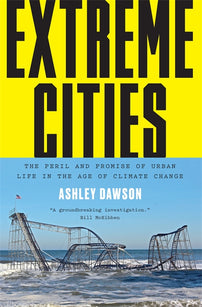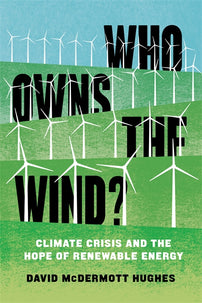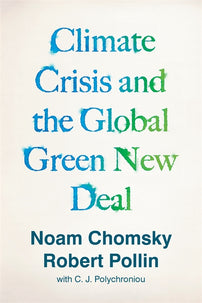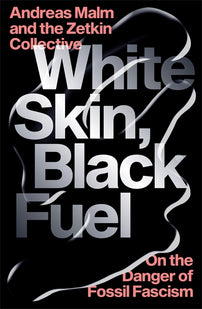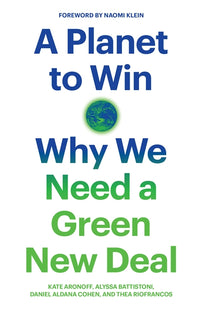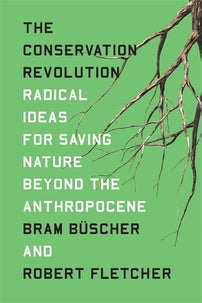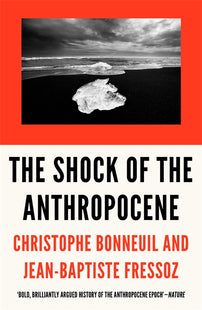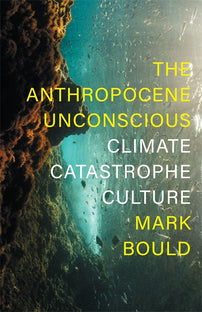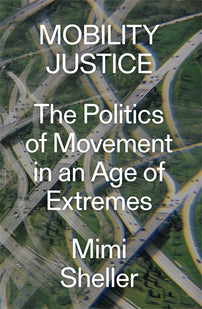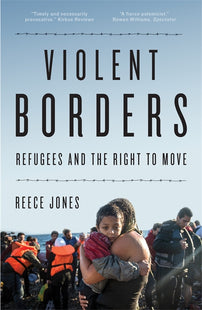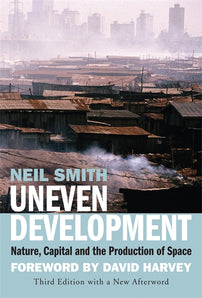Nature Is Always a Political Force: An Interview with Razmig Keucheyan
In this age of compounding climate crisis, how should we understand the relationship between politics and nature?Sociologist and leftist organizer Razmig Keucheyan reflects on the answer through this thoughtful discussion of environmental racism, consumerism, and pandemic.

NB: This interview was originally published by Il Manifesto
Sociologist and radical-left activist Razmig Keucheyan is one of the most interesting voices today addressing the current ecological crisis from a Marxist perspective. One of his most important books is The Left Hemisphere, in which he draws a map of the critical theories that have followed since Seattle. This was followed by Nature is a Battlefield (published by Polity Press) and Artificial Needs, which has not yet been translated into English.
In Nature is a Battlefield, Keucheyan proposes a political ecology able to set nature at the heart of transformative politics. In his more recent book, Artificial Needs, he identifies the fight against consumerism as one of the keys to combining anti-capitalism with environmentalism, in the interests of building a 21st century socialism.
Razmig was interviewed for Italy’s Il Manifesto by Massimo Filippi
You’re a sociologist. Sociology, starting from Marx and Weber, has always been a science that studies the interactions that take place within human societies. You, like others, have driven a decisive shift in your discipline by advancing a “politicization of nature.” What do you mean by this, and what led you to this argument?
Modern societies are in a state of “permanent crisis”, which is more or less acute according to the historical period. I have always been interested in what one might call the “rules of transformation” of one type of crisis into other types: for instance, how a financial crisis becomes a political one, as when the subprime crisis of 2008 led to the EU sovereign debt crisis of 2010; or how the current demographic crisis in China will possibly lead to a political and economic one in the coming decades. There are many ways of defining the environmental crisis. My favourite one is this: it is the crisis which, in one way or another, underlies or is present in all other types of crisis. It is the “common denominator” of all crises, sometimes apparent, sometimes more hidden. Hence, my interest for ecological issues arises from an earlier interest for the analysis of crisis-tendencies of modern societies.
One of your books is called Nature Is a Battlefield. Is it enough to say this, or would a complete politicisation of nature require that it be considered one of the major political forces in play, as in the thinking of Latour or Viveiros de Castro, for instance?
Nature was always a political force in history. But is it an ontologically “autonomous” one, in Latour and Viveiros de Castro’s sense? Well, natural resources certainly have an influence on power relations. For instance, as Timothy Mitchell has shown in his book Carbon Democracy, the intrinsic “objective” properties of coal or petroleum have not only shaped the way these resources are extracted and marketized, but also power relations between social classes and political institutions. However, to be a political force in the true sense requires being able to project oneself in the future, to strategize, to form collective representations and intentionality. This is obviously a specificity of humankind, which is thus the only real – not metaphorical – political force. As Marx says, humankind is part of nature, but “free and conscious activity” is its “species-character”.
[book-strip index="1" style="display"]Your books set out an unyielding critique of capitalism. But speaking of the current climate crisis, you always use the term Anthropocene. Why is that — and do you feel closer to Jason Moore or to Dipesh Chakrabarty?
It is analytically correct to say that the environmental crisis was mainly caused by industrial capitalism, starting in the second half of the 18th century and unfolding to this day. Capitalism was born before the industrial revolution, but it is the latter that gave it some of its environmentally most disastrous traits, in particular its reliance on the fossil energy system, based on coal, oil and gaz. Without the latter, capitalism would have remained a “local” socioeconomic system, it wouldn’t have globalized the way it has since the 19th century. So, capitalocene, no doubt.
However, this doesn’t mean that anthropocene isn’t an interesting concept. There are environmental inequalities, in the sense that subaltern classes throughout the world tend to be more often affected by pollutions, natural catastrophes and biodiversity collapses. But to some extent, the dominant classes are affected too. For instance, the California wildfires, now endemic, destroy neighbourhoods were the rich live. Hence, we need a concept that captures the novelty of our present predicament, and anthropocene can play that role. I don’t see the two as opposed, but as in dialectical relationship.
In your recent book on artificial needs, you argue that desires are constructed, and that a path out of consumerism also passes by way of the social recognition of this fact. How do you think this can transform into concrete, effective political action against the vast industry of consumerist disciplining?
Consumerism doesn’t proceed from a “natural” desire of people to possess ever more stuff. It was socially constructed, and fairly recently. One can discuss the historical origins of “consumer society”. Some historians trace it back to the Renaissance. However, it is essentially in the second half of the 20th century that consumption underwent a form of “massification”, leading to the consumerism we can witness today. Three institutions in particular have made the rise of “consumer society” possible: advertising, credit, and (more or less) planned obsolescence. Firms have spent more and more on advertising to sell products, consumer credit regulations have been loosened so as to allow consumers to buy by getting into debt, and commodities have been made out of cheap materials, so as to encourage their rapid replacement.
Hence, fighting consumerism and its catastrophic effects on the planet implies, among other things, abolishing or limiting the influence of these institutions, for instance, prohibiting or strictly controlling advertising, which is the basic mechanism leading to the creation of “artificial needs”. Wouldn’t our world look very different if the “colonization of everyday life” by advertising were to be rolled back?
The current SARS-CoV-2 pandemic is clearly “naturecultural,” to use a term from Donna Haraway. How do you interpret it, from your perspective — how much is it “natural” and how much “cultural”?
Many things have been written about the pandemic, and many more will be as the multiple causalities by which it emerged become clearer in the years to come. An important question is this: will this event no one (or in fact few people) had foreseen lead to a new “common sense”, to quote a famous concept from Gramsci, that will acknowledge the fact that our way of life is endangering the very conditions of human life on earth? The workers’ movement transformed societies in the 19th and 20th century not mainly because it promoted abstract ideas, like equality and justice, but because it led people to experience new social relations of solidarity, of caring, of self-organizing, in their everyday life (of course abstract ideas have their importance). What we need today is to invent similar forms of experiences for the environmental movement. Maybe the experience of the pandemic can help bring them to life.
[book-strip index="2" style="display"]You often speak of environmental racism. What connections can be drawn between this racism, the interminable, ubiquitous migration crisis and the everyday, institutionalized racism denounced by Black Lives Matter?
Among other forms of racism – the economic or cultural, for instance – there exists an environmental racism. This concept refers to the fact that ethnic minorities, whatever the country, are often more frequently victims of pollutions or natural catastrophes. The term “environmental racism” was coined by the great American sociologist Robert Bullard. It accompanied the rise in the 1980s of the so-called “environmental justice movement”. Environmental issues do not appear to be at the forefront of the BLM movement. There, the struggle against police violence against African-Americans is central. But activist networks struggling against environmental racism are widespread in the US, and they are connected to BLM. Such networks also exist in other parts of the world, for instance in Latin America. In my opinion, they are one of the most creative social movements today.
In your book on artificial needs, you argue that one strategy for combatting capital lies in making “use value” hegemonic over “exchange value”. And you say, “This isn’t yet socialism, but starts to look like it.” How do we get from something that looks like socialism, to socialism?
Capitalism is productivist: it starts by producing stuff, and then creates – typically through advertising – artificial needs to sell it. This productivism is mainly explained by competition: private capitals compete with one another, which leads to growing levels of output, i.e. to always new commodities arriving on the markets. Consumerism thus becomes a necessity: people have to consume so as to make way for the next batches of commodities, etc.
From this perspective, the definition of socialism is rather simple. In socialism, the definition of needs, not production, will come first. This definition will be based on democratic procedures, by collective deliberation, it will not be left to private firms and the market. Of course, this poses many political and practical problems, but none are unsurmountable, in my opinion. Then, production would take place in order to satisfy the democratically defined needs. Every person would be free to satisfy whatever need they want, insofar as it is compatible with collectively established environmental and social rules. Ecology can be seen as a continuation of the socialist tradition, a way to rebuild and adapt it to the challenges of the twenty-first century.
Translated by David Broder
